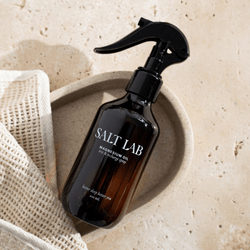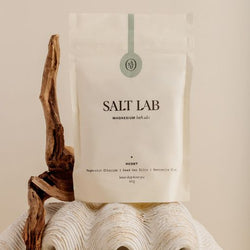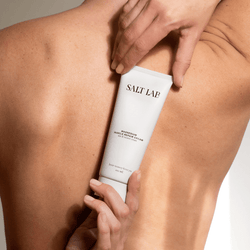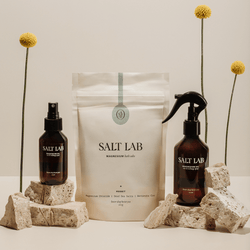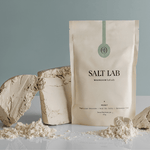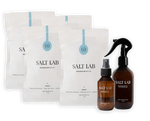Magnesium supplements are quickly gaining popularity, but there are many questions that need to be answered. What do they do exactly? How do they work? And most importantly, do you even need them?
Keep reading to learn everything you need to know about magnesium supplements and how to identify which ones are best for you.
Understanding MagnesiumFirst, what is Magnesium? Magnesium is a mineral element that regulates and plays a role in several physiological and biochemical processes in the body. It is the second most abundant mineral actively stored in the human body, coming close second to calcium.
Magnesium is valuable in many ways, from serving as a critical component of bone structure and density to improving heart and cardiovascular health.
Magnesium is found both in nature and the human body and is essential for keeping your body and mind healthy. Here are some of the many benefits of Magnesium:
- Energy and metabolism
- Maintaining bone health and development
- Muscle and nerve function maintenance
- Blood Pressure regulation
- Improved sleep quality and sport recovery/performance
- Regulation of endocrine and hormonal function
- Improved heart function
- Promoting healing with pain
Signs of Magnesium Deficiency
Research shows that hypomagnesemia (magnesium deficiency) has become increasingly common. In fact, about 1 in 3 Australians do not get enough Magnesium. Many people don't realise they have a magnesium deficiency because it's not often recognised and magnesium levels are rarely tested.
Muscle Cramps And Chronic Pain
Unfortunately, 1 in 5 Australians suffer from chronic pain. Do you ever find yourself in intense pain from a muscle cramp or stiffness and tingles that just won’t go away? That could be magnesium deficiency.
Some researchers have discovered that people who suffer from migraines tend to have lower levels of magnesium compared to those who don’t. While the exact pathway isn’t clear, magnesium deficiency is said to increase the risk of headaches and migraines.
Fatiguability And Muscle WeaknessMagnesium is known to boost cell regeneration and energy levels by participating in the biochemical process that converts food into energy. Low magnesium levels can sometimes manifest as feeling easily tired or consistently weak.
ConstipationMagnesium is important for overall gut health. It relaxes the intestine's muscles and softens the stool. Low magnesium levels have been associated with constipation, and it is commonly used to treat the condition as well.
Depression And AnxietySome studies have shown that magnesium deficiency can result in mental health challenges such as depression, apathy, and anxiety. This is likely due to the effect of magnesium's neuroprotective function.
Osteoporosis60% of the total amount of magnesium in the body is found in the bones. This mineral directly influences the critical bone-building process along with calcium, another abundant bodily mineral, and vitamin D. People with low magnesium levels may experience a higher risk of developing bone stiffness and fragility. It may also lead to gradual bone loss over time.
Sleep ProblemsHaving trouble sleeping? The answer may lie in your magnesium levels! Insomnia is a common symptom of magnesium deficiency, and 1 in 3 Australians face this issue. Those with insomnia often experience restless nights and difficulty falling or staying asleep. Magnesium might just be the sleep solution you've been searching for.
Other common signs and symptoms of low magnesium include loss of appetite, nausea, and vomiting.
Benefits of Magnesium Supplements
It also helps balance mood and reduce symptoms like bloating and breast tenderness. Topical magnesium formulations such as magnesium oil spray and bath salts can be an excellent choice for soothing cramps and relieving P.M.S. symptoms.
High Blood Pressure and Heart HealthSeveral factors contribute to the development of hypertension, such as age, gender, lifestyle, and pregnancy. Magnesium has been found to help relax blood vessels (a key factor in hypertension) and promote their integrity and structure.
Magnesium also positively affects cardiac health, avoiding problems like arrhythmias while promoting overall heart health.
This incredible mineral has also been found to help people who have type 2 diabetes by improving blood sugar regulation and reducing insulin resistance.
Stress Reduction and RelaxationThanks to Magnesium’s effect on the brain’s neurotransmitters and overall function, it can calm the mind and body. By regulating the body’s stress response system and cortisol levels, this mineral helps tremendously in stress reduction and relaxation. It also promotes cognitive function and alertness.
Hormonal BalanceMagnesium can be a great ally in hormonal conditions like type 2 diabetes, PCOS, thyroid dysfunction, insomnia, and muscle spasms. It is involved in the many biochemical processes that regulate the production, release, and function of several hormones, helping to restore balance. Using Magnesium bath salts is a great way to reap these benefits while relaxing.
How Much Magnesium Do You Need?
The amount of magnesium needed will vary depending on your age, gender, and specific conditions such as breastfeeding or pregnancy. According to the National Health and Medical Research Council (NHMRC), the Estimated Average Requirement for Australian adults is 255 - 265 mg/day for women and 330 - 350 mg/day for men.
The Recommended Dietary Intake, however, is slightly higher at 320 mg/day for women and 420 mg/day for men.
In pregnancy and breastfeeding, the requirement rises to about 350-360 mg/day, also varying with age.
Where Can You Get Magnesium?
Magnesium can be obtained from a wide variety of foods. These natural sources of magnesium include green leafy vegetables like spinach and quinoa, nuts like almonds and cashews, and whole grains like wheat and oat bran. Fruits like bananas, avocados, and papaya are also good sources of Magnesium.
For people unable to meet these basic requirements, it would be best to supplement their magnesium intake with the right magnesium supplements.
Types of magnesium supplements
Magnesium supplements come in various forms and formulations. From magnesium recovery sprays and pills to salts and creams, the options are endless. Let's take a look at multiple types of magnesium supplements.
Magnesium Chloride
Typically extracted from brine or seawater, magnesium chloride is one of the best magnesium supplements. It is an active ingredient found in many supplements, including many of ours, and is beneficial in multiple ways. Some benefits of Magnesium Chloride Include:
- Better sleep
- Boosted energy levels
- Soothing pain - chronic pain, menstrual cramps, headaches
- Promoting exercise and muscle recovery
- Maintaining heart health
- Improving mental wellness and mood
How Salt Lab Uses Magnesium Chloride
The great thing about magnesium chloride is its availability and efficiency in many different forms. From salts and sprays, our catalogue of Magnesium Chloride supplements is versatile and rich.
Magnesium Oil and SpraysOur magnesium oil comes in an innovative spray bottle design that allows a quick and mess-free topical application. We also have a travel bottle for those who love to take their Magnesium on the go, as well as a kid-friendly magnesium spray for the little ones.
Magnesium Bath Salts
What’s more relaxing than a bath to soothe your mind and body? A bath infused with Magnesium goodness to promote healing and relaxation. You can incorporate our Salt Lab Magnesium Bath Salt into your relaxing home rituals or self-care routine. It offers a concentrated natural form of magnesium chloride.
Magnesium Cream
Our Salt Lab Magnesium Muscle Repair Cream is a customer favourite. The smooth, rich feel of our product not only delivers all the benefits of magnesium but also leaves your skin feeling intensely moisturised. This intensively rich and hydrating body cream offers the superpower of 39% magnesium and healing for your sore muscles and aching joints. It is deeply penetrating and directly aims to soothe any pain, aches, and stiffness that you may be experiencing.
Whether you’re rewinding after a long day or looking for relief post-workout, this cream melts tension and tightness quickly. This product offers the benefits of magnesium for athletes, helping with muscle pain relief and soothing sore muscles.
We also have various carefully curated bundles for various specific uses, such as the Regenerate Bundle and muscle revival bundles. Kids bundles for calmness and family rest and restoration bundles are great for kids and getting the family centred and calm.
Other Forms of Magnesium include:
Magnesium Citrate: Magnesium is bound with citric acid, which is used to make this common magnesium supplement formulation. Magnesium citrate is usually taken orally to replenish low magnesium levels, but is most commonly used to treat constipation.
Magnesium Glycinate: Magnesium and the amino acid glycine form Magnesium glycinate. They work together to promote protein building and treat some inflammatory problems, like heart disease.
Magnesium Sulfate: This form combines magnesium, sulphur, and oxygen to make what is commonly known as Epsom salt. It comes in a rough salt form and is used in the bath to soothe aches and relieve stress.
Magnesium Oxide: This form combines magnesium and oxygen and is commonly sold in powder or capsule formulations. Although these magnesium supplements are not the best for treating low magnesium levels, they can be used to treat problems like heartburn and indigestion.
How To Choose The Right Magnesium Supplement
Choosing the best magnesium supplement for you can be daunting with so many options available. So, which magnesium supplement is right for you? That depends on your unique needs and preferences. Some factors that may affect your supplement choice are:
-
Your health needs (What is your concern? Gut health, sleep issues, anxiety, etc.)
- Bioavailability of the supplement form (How absorbable is it?)
- Magnesium Dosage and form
- Ingredients and purity (Are you buying from a trusted and reputable brand?)
- Cost and value
FAQs
Just like anything else, an excess of magnesium can cause side effects such as lethargy and diarrhoea. It can also interact with specific drugs, such as diuretics and antibiotics, so ensure that you consult with your healthcare provider and review your unique requirements.
Is it safe for kids?The Salt Lab magnesium line consists of naturally sourced, safe, non-toxic supplements for you and your kids. Magnesium plays a vital role in children's growth and development. We have specially formulated magnesium supplements for kids.
